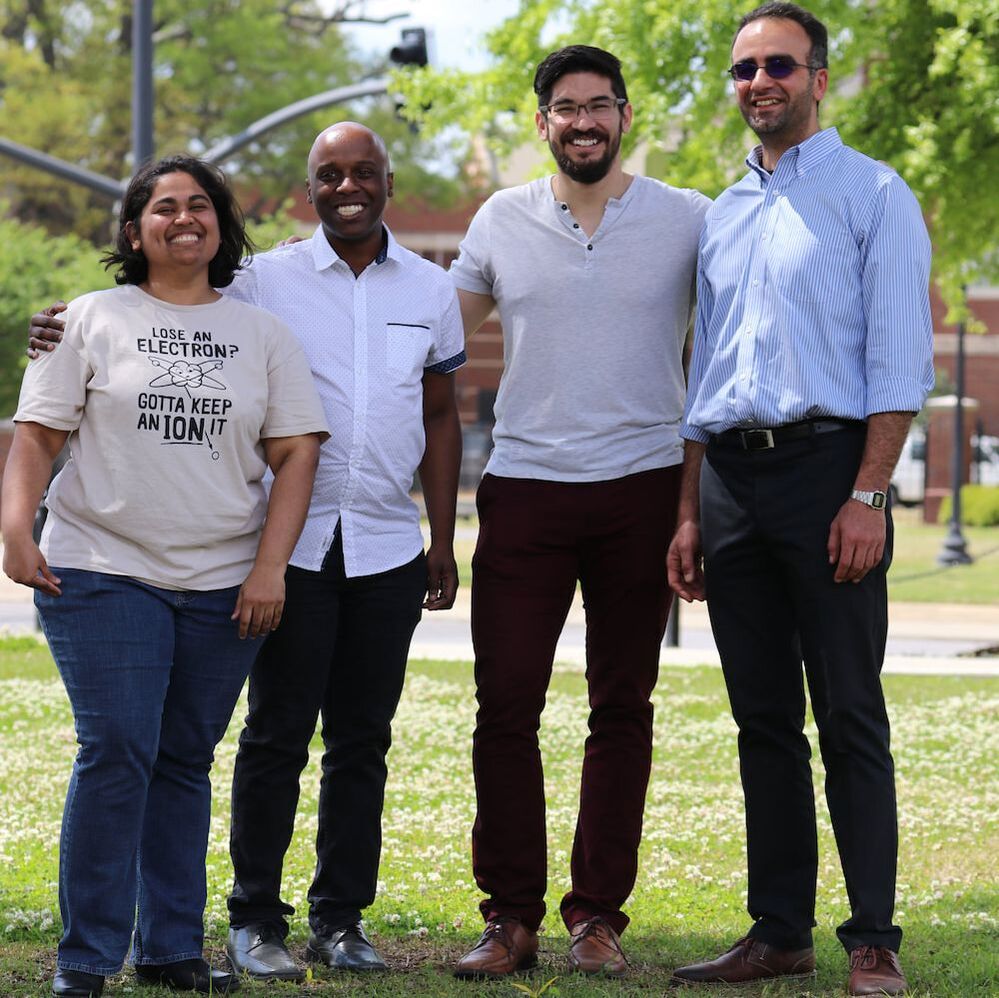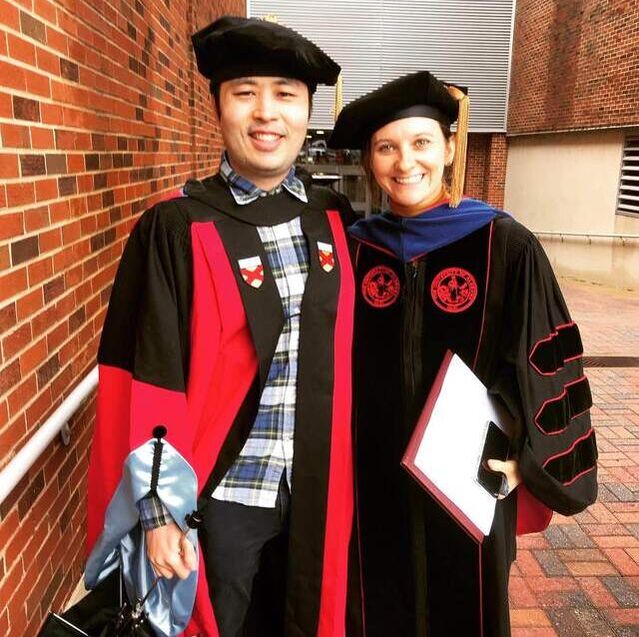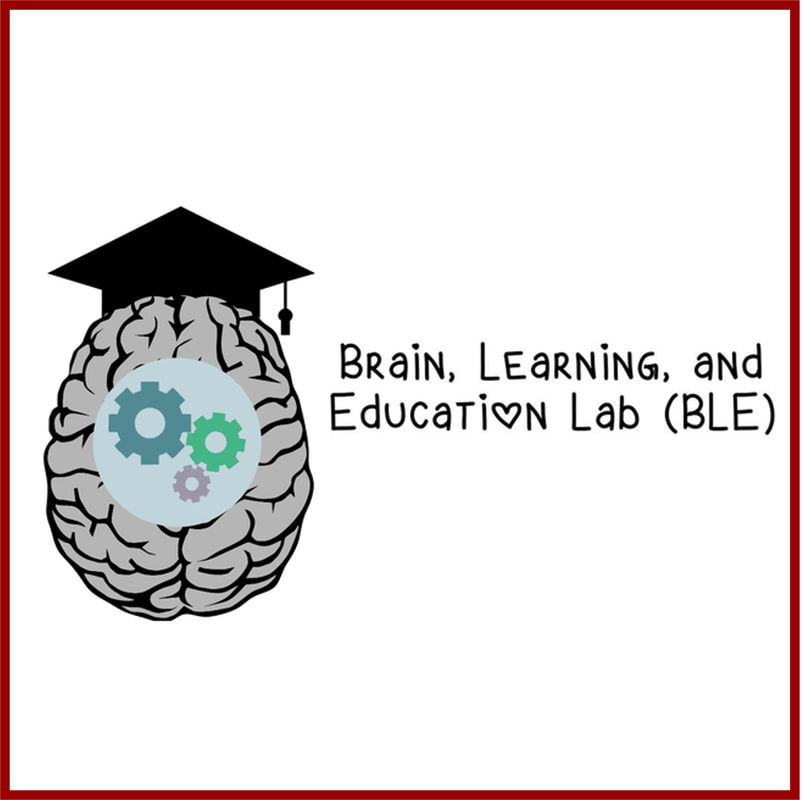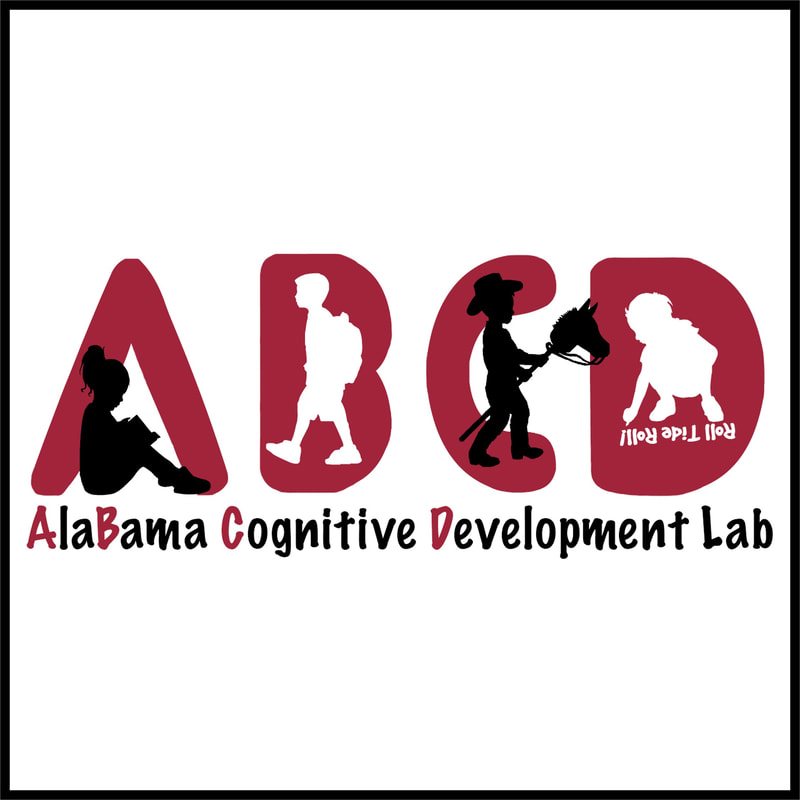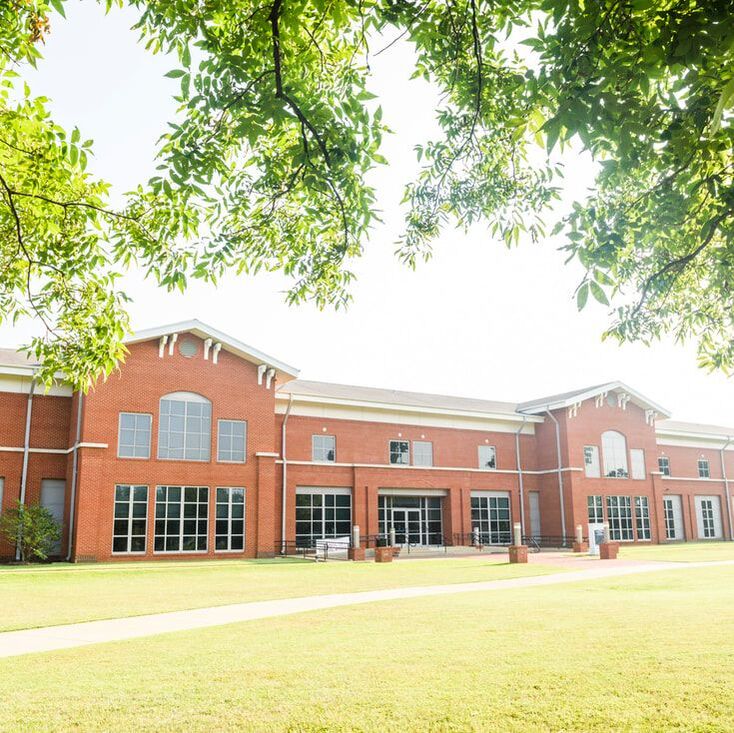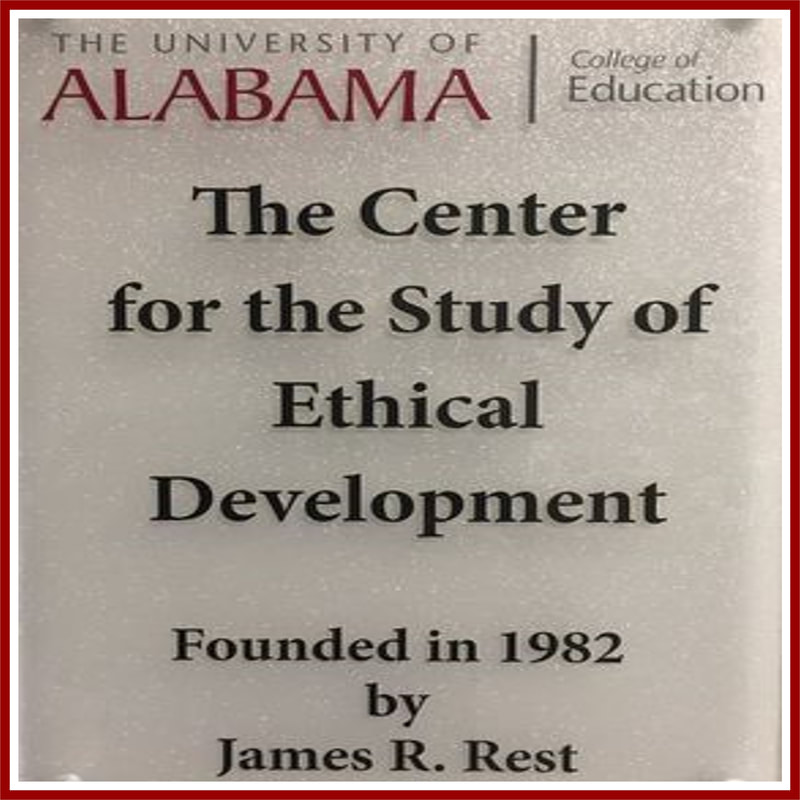Research
|
Publications are organized by year and then by the first author's last name. Bold names are students or faculty in the Educational Psychology graduate program.
** indicates authors contributed to the responsive work equally.
* indicates student authors.
In Press / In Review
Salehzadeh, R.*, Soylu, F., & Jalili, N. (in review). Comparative Study of Machine Learning Methods for Classifying ERP Scalp Distributions.
Soylu, F. (in review). A New Cognitive Ontology for Numerical Cognition. https://doi.org/10.31219/osf.io/3vx56
Walker, D.I. (2023 forthcoming) ‘Communities for Courage’, in Fowers, B., Oxford University Press. Virtue of Courage.
Walker, D.I. (2023 in press) ‘Towards a Critical Character Education using Virtue Ethics Philosophy and Bourdieu’s Sociology’. Journal of Moral Education.
2023
Han, H.**, & McGrath, R. E.** (2023). Latent structural analysis for measures of character strengths: Achieving adequate fit. Current Psychology, 42, 24656–24666.
Blackburn, A. M., Han, H., & Gallegos, A. (2023). Cross-language validation of COVID-19 compliance scale in 28 languages. Epidemiology and Infection, 151, e119.
Dawson, K. J.* **, Han, H.**, & Choi, Y. R.* (2023). How are moral foundations associated with empathic traits and moral identity?. Current Psychology, 42, 10836-10848.
Han, H., Dawson, K. J.*, & Choi, Y-J. (2023). Testing the consistency of the Moral Growth Mindset Measure across people with different political perspectives. European Journal of Psychological Assessment, 39(3), 188-193.
Han, H., Dawson, K. J.*, Walker, D. I., Nguyen, N.*, Choi, Y-J. (2023). Exploring the association between character strengths and moral functioning. Ethics & Behavior, 33(4), 286-303.
Ntontis, E., Blackburn, A. M., Han, H., Stockli, S., Milfont, T. L., Tuominen, J., Griffin, S. M., Ikizer, G., Jeftic, A., Chrona, S., Nasheedha, A., Liutsko, L., & Vestergren, S. (2023). The effects of secondary stressors, social identity, and social support on perceived stress and resilience: Findings from the COVID-19 pandemic. Journal of Environmental Psychology, 88, 102007.
Blackburn, A. M.**, Han, H.**, Gelpi, R., Stockli, S., Jeftic, A., Ch’ng, B., Koszalkowska, K., Lacko, D., Milfont, T. L., Lee, Y., the COVIDiSTRESS II Consortium, & Vestergren, S. (2023). Mediation analysis of conspiratorial thinking and anti-expert sentiments on vaccine willingness. Health Psychology, 42(6), 235-246.
Han, H. (2023). Validating the Behavioral Defining Issues Test across different genders, political and religious affiliations. Experimental Results, 4, e6.
Miranda-Rodríguez, R. A., Leenen, I., Han, H., Palafox-Palafox, G., & García-Rodríguez, G. (2023). Moral reasoning and moral competence as predictors of cooperative behavior in a social dilemma. Scientific Reports, 13, 3724.
Soylu, F., May, K., & Kana, R. (2023). White and Gray Matter Correlates of Theory of Mind in Autism: A Voxel-Based Morphometry Study. Brain Structure and Function. https://doi.org/10.1007/s00429-023-02680-5 [PDF download]
Salehzadeh, R.*, Soylu, F., & Jalili, N. (2023). A comparative study of machine learning methods for classifying ERP scalp distribution. Biomedical Physics & Engineering Express, 9(4), 045027. https://doi.org/10.1088/2057-1976/acdbd0 [PDF download]
Soylu, F. (2023). Theoretical and Educational Challenges with Enactivist Approaches to Mathematical Cognition. Constructivist Foundations, 18(2), 245-247. https://constructivist.info/18/2/245 [PDF download]
Salehzadeh, R.*, Rivera, B., Man, K., Jalili, N., Soylu, F. (2023). EEG Decoding of Finger Numeral Configurations with Machine Learning. Journal of Numerical Cognition, 9(1), 206-221. https://doi.org/10.5964/jnc.10441 [PDF download]
Webber, W.B.*, Soylu, F., & Burnham, J.J. (2023). Stereotyping among graduate students in mental health fields: An EEG study. Journal of Mental Health Counseling, 45(1), 74-92. https://doi.org/10.17744/mehc.45.1.05
Anchan, M.*, & Soylu, F. (2023). Language Matters: Mathematical Learning and Cognition in Bilingual Children. In Katherine M. Robinson, Donna Kotsopoulos, & Adam Dubé (Eds.). Mathematical Learning and Cognition in Middle Childhood and Early Adolescence: Integrating Interdisciplinary Research into Practice. New York City, New York: Springer Publishing [PDF download]
Walker D.I., & Gungordu* N. (2023) ‘Character Strengths as Predictor of Adolescents’ Participation in Sports’. Journal of Psychology and Psychotherapy Research.
Yaghoubi J*, Walker, D.I., & Thoma, S.J. (2023) ‘Empathic Responses to Others in Psychological Pain as Compared to Physical Pain: Does Prior Experience of Pain Matter?’, 42, p6194-6215. Current Psychology https://doi.org/10.1007/s12144-021-01852-y
Gungordu, N*., Nabizadehchianeh*, G., Ma, W., O’Connor, E., & Walker, D.I. (2023 in press). ‘Moral Reasoning Development: Norms for Defining Issue Test-2 (DIT2)’, Ethics and Behavior.
Yaghoubi, J*, Walker, D.I., & Behman, B. (2023). ‘Interaction of Empathy and Culture: a Review, Current Psychology.
Scherman R, Misca G, Walker, D.I., & Pagè G (2023). ‘COVID-19 and beyond: From (forced) remote teaching and learning to “the new normal” in higher education’. Front. Educ. 8:1148300. doi: 10.3389/feduc.2023.1148300
Nabizadehchianeh*, G., Kazemitabar, M., Walker, D.I., & Wind, S. (2023). Psychometric properties of the short version of temperament evaluation of Memphis, Pisa, Paris, and San Diego—Autoquestionnaire (TEMPS-A): Persian version. https://doi.org/10.1016/j.jadr.2023.100501
2022
Yaghoubi Jami, P.** & Han, H.**. (2022). Exploring the development of empathy in Iranian context: A data-driven analysis. Psych, 4(4), 901-917.
Telaku, N., Musliu, A., Cana, L., Han, H., & Zharku, L. (2022). The relationship between personality traits and compliance with the COVID-19 preventive measures in Kosovo. Psych, 4(4), 856-867.
Delios, A., Clemente, E., Wu, T., Tan, H., Wang, Y., Gordon, M., Viganola, D., Chen, Z., Dreber, A., Johannesson, M., Pfeiffer, T., Generalizability Tests Forecasting Collaboration, & Uhlmann, E.L. (2022). Examining the context sensitivity of research findings from archival data. Proceedings of the National Academy of Sciences, 119(30), e2120377119. (Han, H. is a Member of Generalizability Tests Forecasting Collaboration authors).
Han, H.**, Workman, C. I.**, May, J.**, Scholtens, P., Dawson, K. J.*, Glenn, A. L., & Meindl, P. (2022). Which moral exemplars inspire prosociality?. Philosophical Psychology, 35(7). 943-970
Han, H.**, Blackburn, A. M.**, Jeftic, A., Tran, T., Stoeckli, S., & Vestergren, S. (2022). Validity Testing of the Conspiratorial Thinking and Anti-expert Sentiment Scales Across 24 Languages from a Large-scale Global Dataset. Epidemiology & Infection, 150, e167.
Han, H. (2022). Applying deep learning to predict civic purpose development: Within the smart city context. In J. Hemanth (Ed.), Machine Learning Techniques for Smart City Applications: Trends and Solutions (pp. 1-11). Springer.
Han, H. (2022). Neuroscience of morality and teacher education. In M. A. Peters (Ed.), Encyclopedia of Teacher Education. Singapore: Springer. https://doi.org/10.1007/978-981-16-8679-5_190
Han, H. (2022).Cerebellum and Emotion in Morality. In M. Adamaszek M. Manto & S. Dennis (Eds.), Advances in Experimental Medicine and Biology (vol. 1378): Cerebellum and Emotion (pp. 179-194). Cham, Switzerland: Springer.
Blackburn, A., Vestergren, S., Tran, T., Stöckli, S., Griffin, S., Ntontis, E., Jeftic, A., Chrona, S., Ikizer, G., Han, H., Milfont, T., Parry, D., Byrne, G., Gómez-López, M., Acosta, A., Kowal, M., De Leon, G., Gallegos, A., Perez, M., … Yeh, Y-Y. (2022). COVIDiSTRESS diverse dataset on psychological and behavioral outcomes one year into the COVID-19 pandemic. Scientific Data, 9, 331. https://doi.org/10.1038/s41597-022-01383-6
Han, H. (2022). Trust in the scientific research community predicts intent to comply with COVID-19 prevention measures: An analysis of a large-scale international survey dataset. Epidemiology & Infection, 150, e36.
May, J., Workman, C. I., Hass, J., & Han, H. (2022). The neuroscience of moral judgment: Empirical and philosophical development. In F. de Brigard & W. Sinnott-Armstrong (Eds.), Neuroscience and Philosophy (pp. 17-49). Cambridge, MA: MIT Press.
McGrath, R. E., Han, H., Brown, M., & Meindl, P. (2022). What does character education mean to character educators? A prototype analysis of expert opinions. Journal of Moral Education, 51(2), 219-237.
Han, H., & Dawson, K. J.* (2022). Improved model exploration for the relationship between moral foundations and moral judgment development using Bayesian Model Averaging. Journal of Moral Education, 51(2), 204-218.
McGrath, R. E., Brown, M., Westrich, B., & Han, H. (2022). Representative sampling of the VIA Assessment Suite for adults. Journal of Personality Assessment, 104(3), 380-394.
Han, H. (2022). Testing the validity of the Modified Vaccine Attitude Question Battery across 22 languages with a large-scale international survey dataset: Within the context of COVID-19 vaccination. Human Vaccines & Immunotherapeutics, 18, 2024066.
Han, H. (2022). A novel method to use coordinate based meta-analysis to determine a prior distribution for voxelwise Bayesian second-level fMRI analysis. Mathematics, 10(3), 356.
Soylu, F. (2022). Eğitimsel Sinirbilim Araştırma Yöntemleri. In E. Keleş (Ed.) Eğitimsel Sinirbilim. Nobel Yayıncılık [PDF] [BiBTeX]
Suárez-Pellicioni, M., Prado, J., & Booth, J. R. (2022). Neurocognitive mechanisms underlying multiplication and subtraction performance in adults and skill development in children: a scoping review. Current Opinion in Behavioral Sciences, 48, 101228.
2021
Han, H., & Dawson, K. J.* (2021). Applying Elastic-net Regression to Identify the Best Models Predicting Changes in Civic Purpose during the Emerging Adulthood. Journal of Adolescence, 93. 20-27.
Rachev R. N.**, Han, H**, Lacko, D, Gelpi, R., Yamada, Y., & Lieberoth, A. (2021). Replicating the Disease framing problem during the 2020 COVID-19 pandemic: A study of stress, worry, trust, and choice under risk. PLOS One, 16(9), e0257151
Yagobu Jami, P.* **, Han, H.**, Thoma, S. J., & Houser, R. (in press). Do Histories of Painful Life Experiences Affect the Expression of Empathy among Young Adults: An Electroencephalography Study. Frontiers in Psychology, 12, 689304.
Han, H. (2021). Public value, psychology, and neuroscience. Journal of Public Value, 1, 23-32.
Han, H., Ballard, P. J., & Choi, Y-J. (2021). Links between moral identity and political purpose during emerging adulthood. Journal of Moral Education, 50(2), 166-184.
Gungordu N., Hernandez-Reif M., Choi, Y-J, & Walker D. I. (2021). The Reliability and Validity of the Lifespan Sibling Relationship Scale (LSRS) with an English-Speaking Young Adult Sample. Families in Society. 1-8.
Maximo, J.O., Nelson, C.M., Kana, R.J. (2021). "Unrest while resting"? Brain entropy in autism spectrum disorder. Brain Research, 1762, (147435), 1-8.
Morett, L. M., Fraundorf, S. H., & McPartland, J. C. (2021). Eye see what you're saying: Contrastive use of beat gesture and pitch accent affects online interpretation of spoken discourse. Journal of Experimental Psychology: Learning, Memory, and Cognition.
Roche, J. M., Zgonnikov, A., & Morett, L. M. (2021). Cognitive Processing of Miscommunication in Interactive Listening: An Evaluation of Listener Indecision and Cognitive Effort. Journal of Speech, Language, and Hearing Research, 1-17.
Wilcox, G., Morett, L. M., Hawes, Z., & Dommett, E. J. (2021). Why educational neuroscience needs educational and school psychology to effectively translate neuroscience to educational practice. Frontiers in Psychology (Section: Educational Psychology), 11, 618449.
Rivera, B., & Soylu, F. (2021). Incongruity in fraction verification elicits N270 and P300 ERP effects. Neuropsychologia, 161, 108015.
Suárez-Pellicioni, M., Soylu, F., & Booth, J. R. (2021). Gray matter volume in left intraparietal sulcus predicts longitudinal gains in subtraction skill in elementary school. NeuroImage, 235, 118021.
Suárez Pellicioni, M., Demir-Lira, O.E., Booth, J. (2021). Neurocognitive mechanisms explaining the role of math attitudes in predicting children’s improvement in multiplication skill. Cognitive, Affective, and Behavioral Neuroscience.
Yaghoubi Jami, P., Han, H., Thoma, S. J., Mansouri, B., & Houser, R. (2021). Do histories of painful life experiences affect the expression of empathy among young adults? An electroencephalography study. Frontiers in Psychology, 12, 689304.
2020
Ammons, C. J., Winslett, M., Bice, J., Patel, P., May, K. E.*, & Kana, R. K.* (2020). The mid-fusiform sulcus in autism spectrum disorder: Establishing a novel anatomical landmark related to face processing. Autism Research, 0, 1-12.
Chapman, M. S., May, K. E.,* Scofield, J.,* Decoster, J., & Bui, C. (2020). Does group membership affect children’s judgments of social transgressions? Journal of Experimental Child Psychology, 189, 1–13. doi:10.1016/j.jecp.2019.104695
Gungordu N.* & Hernandez-Reif M. (2020). Sibling Relationship Dynamics Relate to the Empathy Process in Young Adulthood. Journal of Family Studies, 1-15. http://dx.doi.org/10.1080/13229400.2020.1753560.
Han, H., Dawson, K. J., Thoma, S. J., & Glenn, A. L. (2020). Developmental level of moral judgment influences behavioral patterns during moral decision-making. The Journal of Experimental Education, 88(4), 660-675.
Chicago
Han, H. (2020). Implementation of Bayesian multiple comparison correction in the second-level analysis of fMRI data: With pilot analyses of simulation and real fMRI datasets based on voxelwise inference. Cognitive neuroscience, 11(3), 157-169.
Chicago
Han, H., Ballard, P. J., & Choi, Y. J. (2019). Links between moral identity and political purpose during emerging adulthood. Journal of Moral Education, 1-19.
Chicago
Han, H., Lee, K.**, & Soylu, F.** (2020). Applying the deep learning method for simulating outcomes of educational interventions. SN Computer Science. https://doi.org/10.1007/s42979-020-0075-z. SN SocArXiv ResearchGate Academia
** indicates authors contributed equally
Hughes-Berheim, S. S.,*^ Morett, L. M.,^ & Bulger, R.† (2020). Semantic relationships between representational gestures and their lexical affiliates are evaluated similarly for speech and text. Frontiers in Psychology (Section: Cognition), 11, 2808.
May, K. E.,* & Kana, R. K.* (2020). Frontoparietal Network in Executive Functioning in Autism Spectrum Disorder. Autism Research, 0, 1-16. doi:10.1002/aur.2403
May, K. E.,* Martino, M. A., & Kana, R. K.* (2020). Emotional Cognition, Theory of Mind, and Face Recognition in Individuals with Autism and PDDs. In J. L. Matson & P. Sturmey (Eds.) International handbook of autism and pervasive developmental disorders. New York: Springer
Morett, L. M. (2020). The influence of tonal and atonal bilingualism on children's lexical and non-lexical tone perception. Language and Speech, 63 (2), 221-241.
Morett, L. M., Landi, N., Irwin, J., & McPartland, J. C. (2020). N400 amplitude, latency, and variability reflect temporal integration of beat gesture and pitch accent during language processing. Brain Research, 1747, 147059.
Morett, L. M., Roche, J. M., Fraundorf, S. H., & McPartland, J. C. (2020). Contrast is in the eye of the beholder: Infelicitous beat gesture increases cognitive load during online spoken discourse comprehension. Cognitive Science, 44 (10), e12912.
Soylu, F.† & Newman, S. D.† (2020). Editorial: Towards an Understanding of the Relationship Between Spatial Processing Ability and Numerical and Mathematical Cognition. Frontiers in Psychology, Cognition. †Authors contributed equally. https://doi.org/10.3389/fpsyg.2020.00014
2019
Centanni, T. M., Anchan, M.*, Beard, M., Brooks, R., Thompson, L., & Petrill, S. (2019). Genetic and environmental influences on decoding skills-implications for music and reading. Frontiers in Psychology, 10, 2604. https://doi.org/10.3389/fpsyg.2019.02604
Brown, P., RELISH Consortium, & Zhou, Y. (2019). Large expert-curated database benchmarking document similarity detection in biomedical literature search. Database. (Han, H. member of RELISH Consortium authors).
Burns-Nader, S. Scofield, J., & Jones, C. (2019). The Role of Shape and Specificity in Young Children’s Object Substitution. Infant and Child Development. https://doi.org/10.1002/icd.2124
Ku, Y. R.* (2019). Book Review: Multilinguals’ Verbalisation and Perception of Emotions by Resnik, P. Journal of Language and Social Psychology, 38(3), 394–395. doi:10.1177/0261927x19834973
Choi, Y-J., Han, H., Dawson, K. J.*, Thoma, S. J., & Glenn, A. L. (2019). Evaluating reliability, validity, and differential item functioning of the Behavioral Defining Issues Test (bDIT). European Journal of Developmental Psychology, 16(5), 622-631. T&F PsyArXiv ResearchGate Academia
Han, Hyemin (2019). Neuroscience of morality and teacher education. In Michael A. Peters (ed.), Encyclopedia of Teacher Education. Singapore: Springer.
Han, H., Liauw, I., & Kuntz, A. F. (2019). Moral Identity Predicts the Development of Presence of Meaning during Emerging Adulthood. Emerging Adulthood. https://doi.org/10.1177/2167696818758735
Yagobu Jami, P.*, Behzad, M., Thoma, S., & Han, H. (2019). An investigation of the divergences and convergences of trait empathy across two cultures. Journal of Moral Education, 48(2), 214-229. T&F PsyArXiv ResearchGate Academia
Mansouri, B., Jami, P. Y., & Salmani, B. Y. (2019). Teachers and Learners' Views on Isolated vs. Integrated Form-Focused Grammar Instruction: A Comparison of Two Contexts. TESL-EJ, 23(3), n3.
Morett, L. M., & Fraundorf, S. H. (2019). Listeners consider alternative speaker productions in discourse comprehension and memory: Evidence from beat gesture and pitch accenting. Memory and Cognition, 47, 1515-1530.
Han, H., Glenn, A. L., & Dawson, K. J.* (2019). Evaluating Alternative Correction Methods for Multiple Comparison in Functional Neuroimaging Research. Brain Sciences, 9(8), 198. MDPI
Han, H., Firat, S., & Anchan, M.* (2019). Connecting levels of analysis in educational neuroscience: A review of multi-level structure of educational neuroscience with concrete examples. Trends in Neuroscience and Education. Elsevier PsyArXiv ResearchGate Academia
Morett, L. M. (2019). The power of an image: Images enhance L2 word learning more than glosses. Journal of Psycholinguistic Research. https://doi.org/10.1007/s10936-018-9623-2
Han, H., & Park, J. (2019). Bayesian meta-analysis of fMRI image data. Cognitive Neuroscience, 10(2), 66-76. https://doi.org/10.1080/17588928.2019.1570103
Han, H. (2019). The VIA Inventory of Strengths, positive youth development, and moral education. Journal of Positive Psychology, 14(1), 32-40. https://doi.org/10.1080/17439760.2018.1528378
Soylu, F., Rivera, B.*, Anchan, M.*, & Nathaniel, N.* (2019). ERP differences in processing canonical and non-canonical finger numeral representations. Neuroscience Letters. https://doi.org/10.1016/j.neulet.2019.04.032
Soylu, F., Seo, R., Newman, M. & Newman, S.D. (2019). Gray Matter Correlates of Finger Gnosis in Children: a VBM Study. Neuroscience. https://doi.org/10.1016/j.neuroscience.2019.01.032
Wind, S., Mansouri, B., & Yaghoubi Jami, P.* (2019). Student Perceptions of Grammar Instruction in Iranian Secondary Education: Evaluation of an Instrument using Rasch Measurement. Theory Journal of Applied Measurement, 20 (1), 46-65.
2018
Han, H., Park, S., Kim, J., Jeong, C., Kunii, Y., & Kim, S. (2018). A quantitative analysis of moral exemplars presented in moral education textbooks in Korea and Japan. Asia Pacific Journal of Education. https://doi.org/10.1080/02188791.2018.1423950
Feiler, J. B.*, & Stabio, M. E. (2018). Three pillars of educational neuroscience from three decades of literature. Trends in neuroscience and education. https://doi.org/10.1016/j.tine.2018.11.001
Han, H., Park, J., & Thoma, S. J. (2018). Why do we need to employ Bayesian statistics and how can we employ it in studies of moral education? With practical guidelines to use JASP for educators and researchers. Journal of Moral Education, 47(4), 519-537. https://doi.org/10.1080/03057240.2018.1463204
Han, H., Choi, Y., Dawson, K. J.*, & Jeong, C. (2018). Moral growth mindset is associated with change in voluntary service engagement. PLOS One, 13(8), e0202327. https://doi.org/10.1371/journal.pone.0202327
Han, H., Lee, K., & Soylu, F., (2018). Simulating outcomes of interventions using a multipurpose simulation program based on the evolutionary causal matrices and Markov chain. Knowledge and Information Systems, 18(2), 223-227. https://doi.org/10.1007/s10115-017-1151-0
Han, H., & Park, J. (2018). Using SPM 12’s second-level Bayesian inference procedure for fMRI analysis: Practical guidelines for end users. Frontiers in Neuroinformatics, 12, 1. https://doi.org/10.3389/fninf.2018.00001
Morett, L.M. (2018). In hand and in mind: Effects of gesture production and viewing on second language word learning. Applied Psycholinguistics. https://doi.org/10.1017/S0142716417000388
Scofield, J., Merriman, W. E., & Wall, J. L.* (2018). The Effect of a Tactile-to-Visual Shift on Young Children’s Tendency to Map Novel Labels Onto Novel Objects. Journal of Experimental Child Psychology, 172, 1-12. https://doi.org/10.1016/j.jecp.2018.03.003
Soylu, F., Raymond, D.R., Gutierrez, A.M., & Newman, S.D. (2018). The differential relationship between finger gnosis, and addition and subtraction: an fMRI study. Journal of Numerical Cognition, 3(3), 694–715. https://doi.org/10.5964/jnc.v3i3.102
Soylu, F., Newman, S.D. & Lester, F.K. (2018). You can count on your fingers: The role of fingers in early mathematical development. Journal of Numerical Cognition, 4(1), 107-135. https://doi.org/10.5964/jnc.v4i1.85
Yaghoubi Jami, P.*, Mansouri, B., & Thoma, S. (2018). Age and educational level predict trait empathy among Iranian population. Current Psychology. https://doi.org/10.1007/s12144-018-9967-7
Yaghoubi Jami, P.*, Mansouri, B., Thoma, S., & Han, H. (2018). An investigation of the divergences and convergences of trait empathy across two cultures. Journal of Moral Education. https://doi.org/10.1080/03057240.2018.1482531
Wind, S., Yaghoubi Jami, P.*, & Mansouri, B. (2018). Exploring the Psychometric Properties of the Empathy Quotient for Farsi Speakers. Current Psychology. https://doi.org/10.1007/s12144-018-9938-z
2017
Gungordu, N. (2017). Are empathy traits associated with cultural orientation?: a cross-cultural comparison of young adults (Doctoral dissertation, University of Alabama Libraries).
Glenn, A. L., Han, H., Yang, Y., Raine, A., & Schug, R. A. (2017). Associations between psychopathic traits and brain activity during instructed false responding. Psychiatry Research: Neuroimaging, 266, 123-137. https://doi.org/10.1016/j.pscychresns.2017.06.008
Han, H., Kim, J., Jeong, C., & Cohen, G. L. (2017). Attainable and relevant moral exemplars are more effective than extraordinary exemplars in promoting voluntary service engagement. Frontiers in Psychology, 8, 283. https://doi.org/10.3389/fpsyg.2017.00283
Han, H. (2017). Neural correlates of moral sensitivity and moral judgment associated with brain circuitries of selfhood: A meta-analysis. Journal of Moral Education, 46(2), 97-113. https://doi.org/10.1080/03057240.2016.126283
Han, H., & Glenn, A. L. (2017). Evaluating Methods of Correcting for Multiple Comparisons Implemented in SPM12 in Social Neuroscience fMRI Studies: An Example from Moral Psychology. Social Neuroscience. https://doi.org/10.1080/17470919.2017.1324521
Malin, H., Han, H., & Liauw, I. (2017). Civic purpose in late adolescence: Factors that prevent decline in civic engagement after high school. Developmental Psychology, 53(7), 1384-1397. http://dx.doi.org/10.1037/dev0000322
Lee, C. M. A., & Thoma, S. J. (2017). Developing and testing a scale of moral thinking and communication (MTC) functioning: a preliminary study and its implications for moral development and education. Asia Pacific Journal of Education, 1-19. https://doi.org/10.1080/02188791.2017.1386618
Roche, C., Radomski, M., Grimes, T., & Thoma, S. J. (2017). Promoting peer debate in pursuit of moral reasoning competencies development: spotlight on educational intervention design. Innovations in Pharmacy, 8(4), 2-2. https://doi.org/10.24926/iip.v8i4.928
Roche, C., & Thoma, S. (2017). Insights from the Defining Issues Test on Moral Reasoning Competencies Development in Community Pharmacists. American journal of pharmaceutical education, 81(8), 5913. https://doi.org/10.5688/ajpe5913
Soylu, F., Holbert, N., Brady, C., & Wilensky, U. (2017). Embodied perspective taking in learning about complex systems. Journal of Interactive Learning Research, 28(3), 269–303.
Walker, D. I., Thoma, S. J., Jones, C., & Kristjánsson, K. (2017). Adolescent moral judgement: A study of UK secondary school pupils. British Educational Research Journal, 43(3), 588-607. https://doi.org/10.1002/berj.3274
2016
Bebeau, M. J., Thoma, S. J., & Cunningham, C. D. (2016). Educational Programs for Professional Identity Formation: The Role of Social Science Research. Mercer L. Rev., 68, 591.
Han, H. (2016). How can neuroscience contribute to moral philosophy, psychology and education based on Aristotelian virtue ethics?. International Journal of Ethics Education, 1(2), 219-223. Springer. https://doi.org/10.1007/s40889-016-0016-9
Han, H., Chen, J., Jeong, C., & Glover, G. H. (2016). Influence of the cortical midline structures on moral emotion and motivation in moral decision-making. Behavioural Brain Research, 302, 237-251. Elsevier. https://doi.org/10.1016/j.bbr.2016.01.001
Han, H., Lee, K., & Soylu, F. (2016). Predicting Long-term Outcomes of Educational Interventions Using the Evolutionary Causal Matrices and Markov Chain Based on Educational Neuroscience. Trends in Neuroscience and Education, 5(4), 157-165.
Elsevier ArXiv. https://doi.org/10.1016/j.tine.2016.11.003
Mccreary, G., Bray, N., & Thoma, S. (2016). Bad Apples or Bad Barrels? Moral Disengagement, Social Influence, and the Perpetuation of Hazing in the College Fraternity. Oracle: The Research Journal of the Association of Fraternity/Sorority Advisors, 11(2).
Morett, L.M., O’Hearn, K., Lynn, A. S., Luna, B., & Ghuman, A. S. (2016). Altered gesture and speech production in ASD detract from in-person communicative quality. Journal of Autism and Developmental Disorders, 46, 998–1012.
Soylu, F., (2016). An embodied approach to understanding: Making sense of the world through simulated bodily activity. Frontiers in Psychology, 7:1914. https://doi.org/10.3389/fpsyg.2016.01914
Soylu, F., & Newman, S.D. (2016). Anatomically ordered tapping interferes more with one-digit addition than two-digit addition - A dual-task fMRI study. Cognitive Processing. 17(1), 67–77. https://doi.org/10.1007/s10339-015-0737-2
Thoma, S. J., Bebeau, M. J., & Narvaez, D. (2016). How not to evaluate a psychological measure: Rebuttal to criticism of the Defining Issues Test of moral judgment development by Curzer and colleagues. Theory and Research in Education, 14(2), 241-249. https://doi.org/10.1177%2F1477878516635365
Zhang, Q., & Thoma, S. J. (2016). An Empirical Cross-Cultural Study of Moral Judgment Development in Mainland China. Ethics in Progress, 7(1), 228-245.
2015
Brady, C., Holbert, N., Soylu, F., Novak, M., & Wilensky, U. (2015). Sandboxes for model-based inquiry. Journal of Science Education and Technology, 24(2-3), 265-286. https://doi.org/10.1007/s10956-014-9506-8
Greer, J. L., Searby, L. J., & Thoma, S. J. (2015). Arrested development? Comparing educational leadership students with national norms on moral reasoning. Educational Administration Quarterly, 51(4), 511-542. https://doi.org/10.1177%2F0013161X14539807
Han, H. (2015). Purpose as a moral virtue for flourishing, Journal of Moral Education, 44(3), 291-309. https://doi.org/10.1080/03057240.2015.1040383
Han, H. (2015). Virtue ethics, positive psychology, and a new model of science and engineering ethics education. Science and Engineering Ethics, 21(2), 441-460. Springer.
Houser, R., Thoma, S., Fonseca, D., O’Conner, E., & Stanton, M. (2015). Enhancing statistical calculation with transcranial direct current stimulation (tDCS) to the left intra-parietal sulcus (IPS). Trends in Neuroscience and Education, 4(4), 98-101. https://doi.org/10.1016/j.tine.2015.07.002
Morett, L.M. (2015). How the hands cue the mind: effects of iconicity and enactment on sign language acquisition. Journal of Cognitive Psychology, 27, 251–276.
Morett, L.M., & Chang, L. Y. (2015). Emphasizing sound and meaning in tonal language acquisition: a gesture training study. Language, Cognition and Neuroscience, 30, 347–353.


